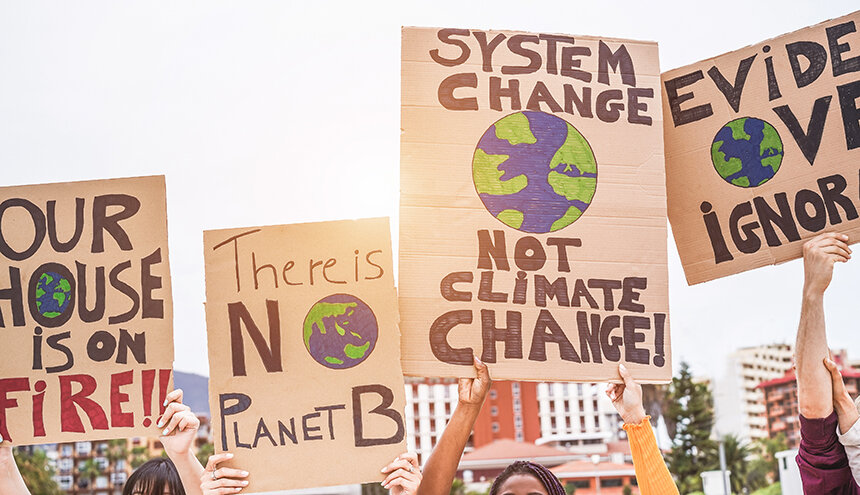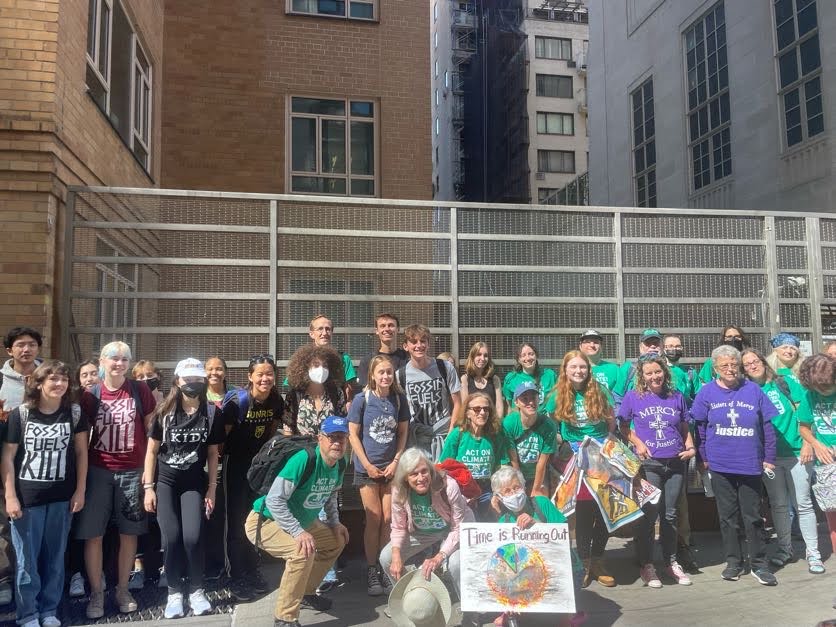D.C. Climate Rally Energizes Rhode Island Protesters
February 19, 2013
WASHINGTON, D.C. — The last demonstration Calvin Lau attended in the nation’s capital was an anti-Vietnam War protest in 1972. Back then, the crowd was predominantly college-age. The atmosphere was tense, Lau said.
The mood at Sunday’s climate rally, by contrast, was far more optimistic. The gathering of some 40,000 activists was solidly collegiate, but included nearly as many baby boomers like Lau, 62. Toddlers, octogenarians and those in between also joined the cause. Michael Brune, head of the Sierra Club, marched with his three young children.
“This is more peaceful,” Lau said, as the parade ambled along 15th Street toward the National Mall. At times, the march was more festive than somber, with music, environmental groups of all stripes flaunting their banners and comic characters such as the Lorax.
Lau, a Warwick resident, traveled to the rally on one of four tour buses from Rhode Island. Brown University chartered two buses. The Sierra Club of Rhode Island chartered two. All were full.
Most attendees were invigorated by the spirited march around the White House and the brief speeches delivered by the upper echelon of environmental leaders: Van Jones, Bill McKibben and Brune.
Robert Chew, Rhode Island’s best-known solar energy expert, was especially proud of the rousing speech from Sen. Sheldon Whitehouse, D-R.I. Prior to the rally, Chew said he was frustrated by the lack of a mass acceptance of renewable energy in Rhode Island. “To be a part of this has re-energized me,” he said. “I’m coming back to Rhode Island with a new sense of urgency.”
Martha Rounds joined the bus trip with five neighbors from her cohousing association in Acton, Mass. Rounds was thrilled that demanding climate-change action had catalyzed a multi-generational movement. “I’ve never seen that in my lifetime,” she said. “My kids need and want me here. And I need and want to be here. That’s part of the beauty of the movement.”
During the march, Brent Blackwelder, past president of the environmental advocacy group Friends of the Earth, said the rally was a huge boost for the environmental movement, to reduce greenhouse gases and put a stop to the Keystone XL tar-sands pipeline. “This is a massive turn of events,” he said. “I think we are on the way. There is no way they withstand the pressure that’s being applied.”
But some didn’t agree. Ret. Lt. Col. Dave Fisher of Nebraska had the misfortune of parking his Ford Super Duty pickup along the route of the march. He said it was hypocritical that the protesters wanted to stop an oil pipeline when they all needed fossil fuels to attend the rally. “I’m just curious if they’ll drive home,” he said.
There were few skeptics anywhere near the rally. Protesters hailed from Texas, Kentucky, Minnesota, Michigan, New Mexico and even France.
Although there was no certainty among the marchers that President Obama would halt the proposed pipeline, most, like Lau, were overwhelmed by the sense that the problem was too important to stay home. “This is for the future of the whole world,” he said.
Categories
Join the Discussion
View CommentsRecent Comments
Leave a Reply
Related Stories
Your support keeps our reporters on the environmental beat.
Reader support is at the core of our nonprofit news model. Together, we can keep the environment in the headlines.
We use cookies to improve your experience and deliver personalized content. View Cookie Settings




I thank those who organized and attended the rally. I hope it does some lasting good, but activists know the importance of persistance.
If not for the skeptics like Ret. Lt. Col. Dave Fisher of Nebraska we could all be driving electric cars by now.
I had a similar experience where I have not felt fully engaged in a social movement that I actually felt could have an effect since 1973
And there I was thinking that the fundamental reason we aren’t driving electric cars is the battery. AFAIK, nobody has tried to slow progress on battery design, in fact many, many industries would love better batteries. Unfortunately the technology isn’t new and electric cars have been the ‘car of the future’ for over a hundred years since the first prototype made its debut.
On paper I’d be an ideal candidate for an electric car as I rarely travel very far. However in reality they don’t suit me at all. Firstly I’d have to pay 3 times the price of a similarly sized car, which is a lot of money to recover on a rarely used vehicle. My current car gets about 45mpg (UK) and is about 12 years old. If I’d had a battery car I would now have either ditched the car or had to buy a new battery at a price two thirds of a new petrol car. My car lives outside in the cold and periodically needs charging. With a battery car I’d need to charge it regularly whether I used it or not. When my petrol car sits unused, I consume no energy at all, the same cannot be said for an electric car. From time to time I do make long distance trips, something that would be nearly impossible in an electric car. I would either have to rent a car or travel by public transport, which would be extra costs. I can rely on my car. I know how far I can travel before I have to fill it up and there’s no range anxiety for me.
It’s not scepticism of AGW that stops me driving an electric car, it’s scepticism of electric cars. When you attribute negative motivations to people without asking them their opinion, you will never see the genuine barriers to getting them to do what you want.
Thanks to all those Rhode Islanders representing in DC. Persistence and continued small steps will keep the momentum going. and yes, probably some risk and sacrifice on our part. Change is rarely easy but sometimes necessary to stimulate and support our values. With technological advances and our continued support of these technologies, our skepiticism of AGW will gradually erode and become normal.